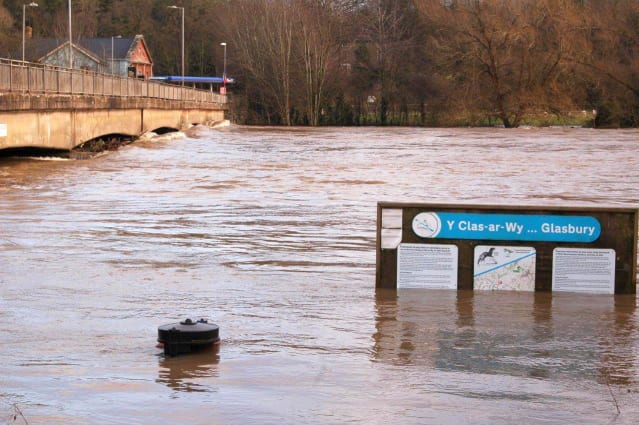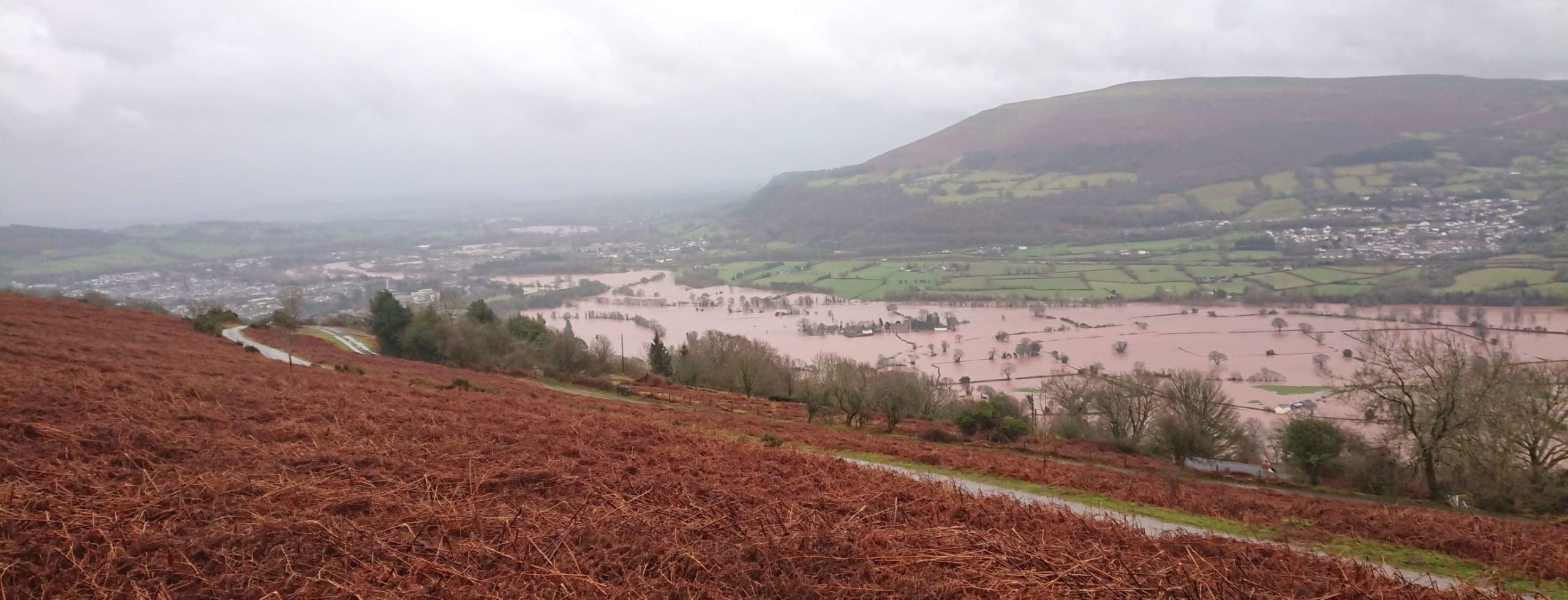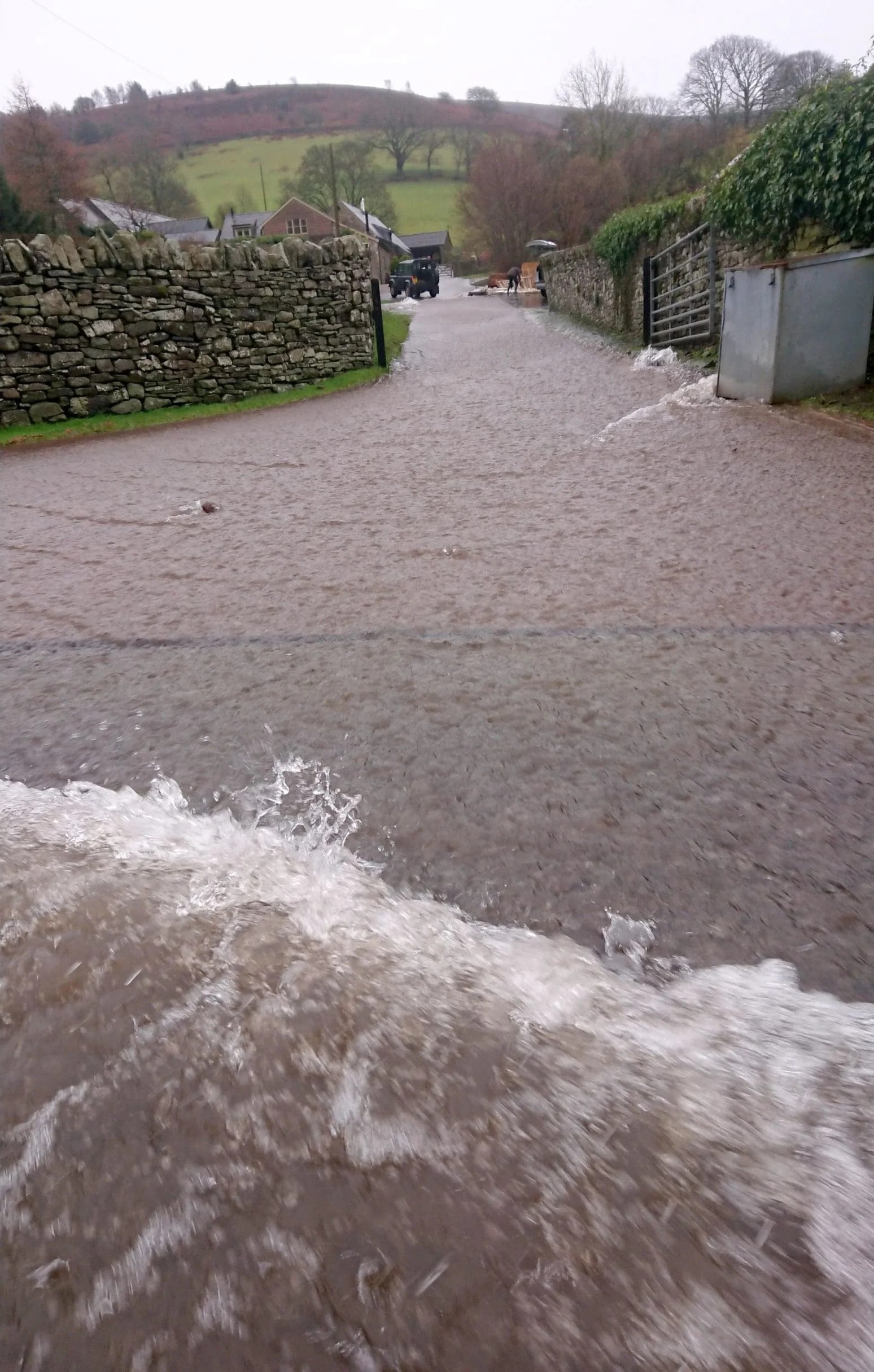Wednesday 19th February, 2020
Storms Ciara and Dennis have left a trail of destruction across Wales and much of England in the past two weeks.
The Wye and Usk valleys have been particularly badly affected with both rivers reaching record levels, bringing the misery of flood water to hundreds of homes and businesses. Our heartfelt sympathies go out to everyone who has been affected by what the Environment Agency has described as “unchartered territory” in terms of flooding.

The bad news is that this is likely to be a sign of things to come. It could even get worse with more extreme weather predicted as climate change takes hold.
Yet there are steps we can take to reduce the severity of floods. The predominant land use in both catchments is farming and it’s there that the greatest opportunities to reduce flooding lie. Extreme heavy rainfall events are exacerbated by poor infiltration rates into soils, resulting in it running quickly into streams and rivers. If managed in the right way, our catchments can soak up and hold back huge volumes of water. It will not be possible to stop floods occurring in the future but we can limit their peaks, giving them a better chance of staying within existing hard defences.
The Wye catchment covers an area of around 460,000 hectares. Much of this area’s soil has depleted organic matter, an important factor in how much water it can hold. If the organic matter of the soil improved by 1% in 70% of this area, around 64 billion litres more water can be stored in it.
The Environment Agency estimated that around 60 billion litres passed under Hereford Bridge yesterday, which saw the peak of the flood.
 Up to now, solutions have been largely local, building hard defences to protect conurbations, a “those houses might flood, let’s build a defence there” type mentality. What has become clear across the UK in the last few years is that there has never been a more important time for a different approach: we must start to manage flood defence on a river catchment-wide basis.
Up to now, solutions have been largely local, building hard defences to protect conurbations, a “those houses might flood, let’s build a defence there” type mentality. What has become clear across the UK in the last few years is that there has never been a more important time for a different approach: we must start to manage flood defence on a river catchment-wide basis.
This will require a change in how we use the land and a move away from a tradition of getting rid of water from the headwaters and landscape as fast as possible, intentionally or unintentionally. We need to manage our catchments so they capture rainfall, slow its release and make full use of the land’s capacity to store water.

Unfortunately, we have not yet heard the same message from Welsh Government. Without a similar approach in Wales, the Environment Secretary’s words will be relatively meaningless to those residents of Hereford, Ross-on-Wye and Monmouth whose homes are currently under water. Being allowed to spend funds allocated to such towns on natural flood management in Wales (where the floodwater originates) would be a good start.
Solving this is not just a matter of English and Welsh Government policy alignment. It will require farmers, water companies, local councils, highways, national parks, rivers trusts and many others to all work together.
If we can do that and change the economic incentives that determine how land is used then there is the potential to nullify the worst effects of increasingly extreme weather conditions and prevent the damage it wreaks on people and the environment.
The Foundation, like all rivers trusts, operates on a catchment basis. We have been running small-scale natural flood management projects for a while (mainly in Herefordshire) but we now need to widen these to the whole of the Wye and Usk catchments.
Read more about the Foundation’s natural flood management work.
